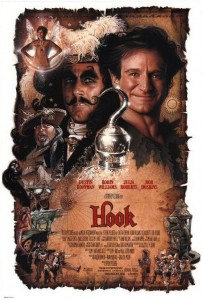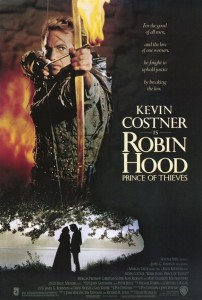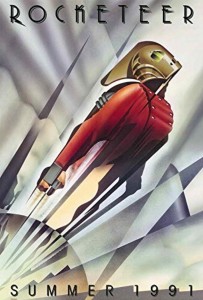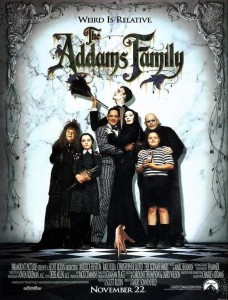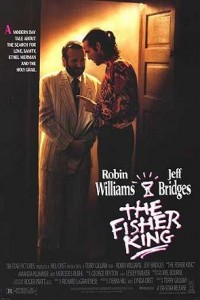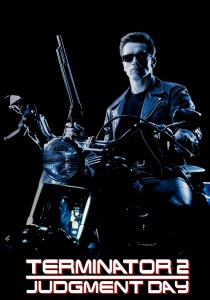1991: The Dream of the Ninties In Film
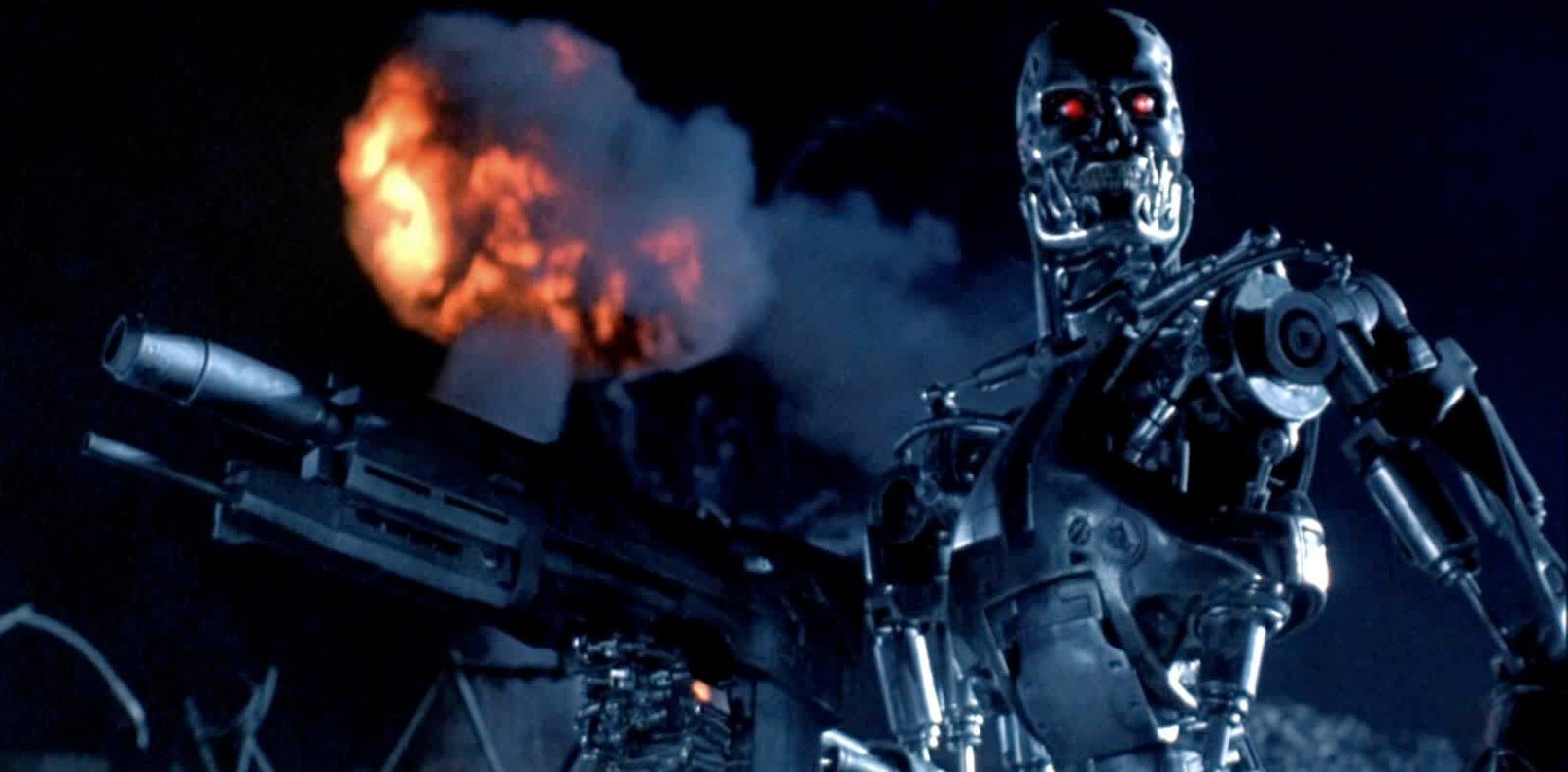
So, Where Was I in 1991?
I was in my last two years of middle school. I’d finally started to come out of my shell the tiniest bit, though I was still just the nervous kid who was just good enough at talking his way out of having the shit kicked out of him by the worst bullies. I was discovering that in my school my social caste was low. Music kids at least had a clique to fit into, and I had long ago learned that I didn’t want to be with the in kids who had some byzantine requirements to run with them, one of which was abandoning the friends who’d always been there for me. My social circle had started to solidify and I was starting to feel a place where I belonged. My love affair with tabletop roleplaying games had also taken off, and I was running games of Robotech and Teenage Mutant Ninja Turtles with my friends. Seeing his son turn into a second generation geek, my dad stepped in to teach my gaming circle how to play Warhammer Fantasy Roleplay. Another older friend would run Dungeons and Dragons and Star Wars while TSR and West End Games were still a thing.
The political scene got weird that year. I remembered that we learned at scout camp, over breakfast prayer, that America had kicked off its involvement in the Gulf War that summer and that we needed to pray for our boys in the war. Later in the fall, I remember watching CNN announcing SCUD strikes out of Iraq and the reports of US Patriot Missiles that knocked (most of) them down. Just after Christmas, a lot of the hubbub about Russia and ‘the bomb’ started dying down as the Soviet Union fell apart. Or at least it felt that way at the time to a young kid who didn’t really grasp the situation. The resulting shitshow it set off would come much later.
I got my first example in huge flaming letters that year about racism, and that race in America was not a settled issue. If that sounds naive, it’s because I was. I grew up with kids of all colors and creeds in my classes, and I had parents who taught me that everyone had something to bring to the table regardless of sex or race, and that we all bled the same color. Everyone was the same inside and there was no good reason to discriminate. Sure, I’d seen a small number of racist kids, parents, and assorted asshats by then, but surely they were on the decline. All my teachers who taught the civil rights movement to us (mostly in February) said so. Sadly, especially when little kids are involved, teachers tend to gloss over or even lie about things. When Rodney King took a beating for the ages at the hands of the Los Angeles Police Department that year, everything changed. Someone had managed to film the whole thing with their camcorder, and that showed that the number of said racist asshats in our country was not exactly in decline. Far from it. It was all anyone could talk about for months. “Can’t we all just get along?” became a mantra heard on TV, on the radio, and on the lips of parties both sincere and mocking. This was also the year that some of my faith in cops as ‘good guys’ started to crumble as I learned about something most white kids didn’t experience: police brutality. It was an important lesson in corruption, racism, and authoritarianism, though I don’t think I could have vocalized it that well at the time.
But, like most twelve year olds… I mostly cared about Sonic the Hedgehog and my new Genesis game system I got for Christmas.
Oh, and a couple of great movies.
The Schlock
There weren’t a lot of good-bad movies to inspire me in this year for whatever reason, though there was a lot of schlock watched. Then again, there was a lot of it from the previous year, so this category gets a buy this round.
Somewhere In the Middle
Hook
When I watched it: 1991
It taught me: Wonder
Stars: ★★★
A lot of my friends go all-in on this movie and it’s a favorite of my girlfriend’s. I like it, though it’s not necessarily a personal blockbuster for me. There was a lot to like though.
The story centers around a successful lawyer, Peter. He has two kids, married a woman he loves, and by all means, things should be looking up. But, he’s starting to feel his age. He’s a burned out workaholic who’s barely able to see his kids; kids who are starting to resent him for it. When he goes to London to visit his wife’s ailing grandmother Wendy, his children mysteriously disappear and the story goes on to to transform into a story we all know: Peter Pan. This is because Peter is him, Peter Pan all grown up. The children have been stolen by none other than Captain Hook who as absconded with them to the Pirate Cove. He returns to Neverland to rescue his children with the help of his long forgotten gang of Lost Boys.
A big part of Hook’s success for me was that it opened up wonder in a way only big-budget special effects could. They were something amazing for their time – the special effects progressed rapidly in the nineties, and this was a showcase example. I remember how vividly the story was brought to life, how magical it all felt. It was everything you hoped Neverland could bring you.
Apart from that, it struck needed balances. A parent could watch it with their child, and each viewer got what they needed from the film. It was a rare instance of something with as much appeal for grown ups as it had for their kids.
The cast was also exceptional, with Robin Williams as peter, Dustin Hoffman as Captain Hook, Bob Hoskins as Smee, and Julia Roberts as Tinkerbell.
Robin Hood: Prince of Thieves
When I watched it: 1991
It taught me: The Devil Is In the Details
Stars: ★★★★
This is almost schlock.
The only things that got it out of that particular bucket, were its insane production value and top-notch actors. You have Morgan Freeman, Kevin Costner, Alan Rickman, Brian Blessed, Christian Slater, Michael Wincott, Mary Elizabeth Mastrantonio, and a cameo from Sean Connery (the most Scottish king of England you’ll ever find).
The story is familiar, just with none of the singing animals that my generation had come to expect from the story. Ultimately, the movie did have a fatal flaw: Kevin Costner. I’ve heard what everyone else heard: Costner was terrible at English accents… so he gave up and played it as straight as he could, rolling with his American accent instead. Regardless of that statement’s truth, no one else seemed to be phoning anything else in for their performances and honestly, Freeman and Rickman steal the show anyway. All it took was that one detail, Costner’s lack of Englishness, to get this film panned.
For a guy who’d later in his career be willing to take extravagantly expensive reshoots for his film Waterworld (1995) when he realized viewers could tell his hair was receding… you’d think Costner would have tried just a little harder. It could have made this into a film that could have really sold the classic tale. Even with Alan Rickman completely eating his lunch.
The Rocketeer
When I watched it: 1991
It taught me: Pulp; Art Deco; That I Still Love Jennifer Connelly
Stars: ★★★★
I remember my dad taking me out to see this. I don’t think we knew what we were gloing to get, though dad had a better idea than I did. This was as much a new hero movie for me as it was a harkening back to the two-fisted adventure tales of his very early youth. In we went with our tickets, and out we came with broad smiles.
The film is about a pilot who happens into a stolen jetpack designed by none other than Howard Hughes. He uses the pack to save lives and eventually draws the attention of Hughes (played by Terry O’Quinn!), the FBI, the thieves, and because it’s set in the thirties… the Nazis (punches incoming!). Adventure ensues.
I just remember getting so caught up in this film in terms of story and design. It taught me a fair amount about how adventure stories from the old pulp magazines worked. It also had just enough of the period’s flavor, such as Deco (used to great effect in the movie poster). If I had to go back and put my thumb on where my love of Deco came from… it may have fully bloomed from somewhere else, but there’s a good chance the seed was planted here.
Also Jennifer Connelley. ‘Nuff said.
The Addams Family
When I watched it: 1991
It taught me: Gallows Humor
Stars: ★★★
This is one of the earliest examples I can personally remember of the reboot boom of this decade. It was before I had learned to utter things like ‘Can’t they just leave [a cherished and loved childhood property] alone? They always wreck it!’ Because this film was friggin’ awesome.
I had initial doubts about it. But they all proved unfounded and it further developed my repertoire of morbid humor. The weird, the strange, the odd, and the ghastly mixed with spontaneous and razor sharp presentation and timing to make something you could laugh at again and again.
Looking back, I ought not be surprised. This had a fantastic cast. Raul Julia, Christopher Lloyd, Angelica Houston and Christina Ricci all came together for a film that simply could not be contained.
The Fisher King
When I watched it: Circa 1995
It taught me: Madness, Consequence
Stars: ★★★★
This is occasionally referred to as a comedy. Because hey, Robin Williams and Jeff Bridges! They’re funny! Especially Williams!
While there are funny bits in this… this is not a comedy. This is a drama. And a heart wrenching one at that.
It follows the lives of two men. One is a former shock jock radio personality whose career has imploded after his online antics bring about a tragic downfall. The other is a mentally ill man roving the streets of New York, believing himself to be a knight on a quest for the Holy Grail. They find each other after the ‘knight’ saves the disgraced radio star from a beating and progresses into a journey of self-redemption (and grail seeking), but it turns out their lives are tragically intertwined already without either one really knowing it.
Primarily, this was a great personal example of the thing most of our parents have the hardest time grinding into us as we grow up: actions have consequences. Sometimes the actions and consequences are simple, and sometimes they run deep and out of control. No one is exempt, and once the train leaves the station, it’s gone and out of your reach to control it.
Additionally, this is one of the first films I remember to effectively convey the condition of mental illness. It’s easy to just look at someone and say “diagnosis: crazy!” Crazy is a term so liberally applied that it’s almost lost meaning. But the way they approach Williams’ character displays the full depth of those deep in the grips of mental illness. Those stricken with madness can be charming, endearing, and forceful; but more often they are haunted or shattered. And to make it worse, you never really know what you’re going to get or how aprson so afflicted is going to act. The film put this right out where you could see it and get a good look. I try to keep what this film taught in mind when I portray a character who has something deeply broken inside.
The scene that sticks with me is the one in which Robin Williams is chasing after a woman played by Amanda Plummer whom Williams is smitten with. Following in her wake, he goes into Grand Central Station and has a delusion in which everyone in the station save for he and his muse are waltzing to music only he can hear. It is a fully fleshed out delusion with the magic that only well choreographed film can provide.
As we watched, my dad’s jaw kind of dropped and he stammered, “If that’s a delusion… I wanna have one.”
Personal Blockbusters
Terminator 2: Judgement Day
When I watched it: 1991, 1992 (Twice)
It taught me: Continuity; Post-Apocalypse
Stars: ★★★★★
I remember this very, very clearly. My parents debated taking me to this film – not just because of the violence and the graphic nature of the subject matter, but also because I’d not seen the first yet. Precisely because of the violence and graphic nature of the original.
Eventually, they decided it was okay, and just before I went to what passes for Space Camp in my home state, we went out to see it.
And my mind was blown. This is where I got my first big dose of the concept that is the post-apocalypse.
Burned out husks of buildings and cars. Skeletal remains scattered everywhere. Laser shots exchanged between bedraggled and desperate humans and gruesome cybernetic killing machines bent on the eradication of mankind. This was a film that planted a seed in me that will not yield. It sprouted roots in my spinal cord, extended tendrils through my arms, and made my hands type out stories of shattered worlds and desperate survival.
Yeah, it’s a big budget action movie that should have been nothing but schlock – the first one was schlock certainly, using (at the time) second-tier character actors (let’s be honest, at the time of The Terminator (1984), Schwarzenegger wasn’t called on for his acting chops). But this is James Cameron we’re talking about. And even in his early years, James Cameron did (and does) not fuck around.
The care and the detail that went into the film was something that really inspired something in me later as well – the concept of continuity carried out beyond the cursory. The mythos of the Terminator had been particularly well thought out concept in the original film, and they incorporated and advanced many details into the second that remained true almost seamlessly in its follow-up. There are things that in repeat viewing that have caused problems (why the T-1000 requires touch to replicate something when a full body scan is probably better; how a T-1000 with no biological components comes through a time travel machine that requires a living energy field for transit). But it still holds up remarkably well.
This film may indeed be the signature film of the decade – it broke the mold of what we thought we could do in terms of story, of special effects, of production value, and upped the ante on how to make not just profitable but great sequels.
